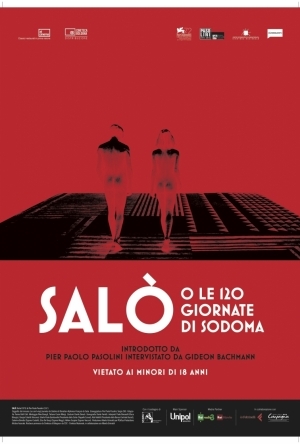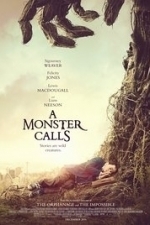Leigh J (71 KP) rated Salò, or the 120 Days of Sodom (1975) in Movies
Nov 10, 2019 (Updated Nov 10, 2019)
I went into Salo VERY nervous; I'd read the Book so had a good idea of what was coming, and especially so as this Movie is always on those "sickest Movies ever" lists, and is almost always very near the #1 spot. Rarely does it ever take the crown though, and after seeing Salo, I understand why. It's so boring!! It's very diagloue heavy, which if done right makes a Movie engaging and compelling. If done wrong, as is the case with Salo, it becomes a tedious chore. Unfortunately for Salo, I was so bored with the pointless drivel that when it eventually did get to the shocking parts, I was over it and not as shocked as I really should have been. I mean, it was bad (two words: poop banquet) but I was left thinking "all that hype and waffle... for this?!" Definitely overrated. The small saving grace of this Movie was a bunch of Prostitutes, ironically. They were telling stories of their own deviancies; I found their stories shocking and they made me sit up and pay attention, some stories being more shocking than what we were seeing. I found those Women disgustingly wonderful and able to actually make something out of the literal crap-show that was Salo. I would only recommend Salo to the die hard "Sick Movie" fans (and that's for the sole purpose of ticking it off your list) and Cinema buffs because the Cinematography is quite nice. Other than that, it would make a fantastic sleep aid!
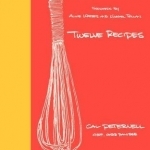
Twelve Recipes
Book
Winner of the 2015 International Association of Culinary Professionals (IACP) Cookbook Award...

Patricia Johanson and the Re-Invention of Public Environmental Art, 1958-2010
Book
Impeccably researched and richly detailed, this book addresses the issue of translation between...

addappt: Live Contacts+Weather
Social Networking, Business and Stickers
App
PRIVACY (more on addappt.com) - We DO NOT store your address book on our servers. - We DO NOT spam...
Movie Metropolis (309 KP) rated A Monster Calls (2016) in Movies
Jun 10, 2019
His hard work paid off last year when it was announced he would be taking over directorial duties on the as yet unnamed Jurassic World sequel. In the meantime, Bayona has been busy working on A Monster Calls, based on the book of the same name by Patrick Ness, but does it continue the director’s brilliant work?
12-year-old Conor (Lewis MacDougall), dealing with his mother’s (Felicity Jones) illness, a less-than-sympathetic grandmother (Sigourney Weaver), and bullying classmates, finds a most unlikely ally when a Monster (Liam Neeson) appears at his bedroom window. Ancient, wild, and relentless, the Monster guides Conor on a journey of courage, faith, and truth through three dramatic tales.
The first thing to say is that the film is visually stunning with detail seeping from every frame. Every shot is breath-taking in its own way and the tall tales in which Liam Neeson’s booming voice narrate are beautiful. Bayona yet again demonstrates his flair for cinematography, but this time his creativeness is set free in Conor’s imagination, where he literally paints pictures with superb animations.
Acting wise, A Monster Calls is sublime. With talent like Liam Neeson, Sigourney Weaver and Felicity Jones making up the bulk of the cast, you’d be forgiven for thinking it’d be easy for newcomer Lewis MacDougall to get lost in the fray, but he doesn’t. His performance throughout the film is exceptional and the chemistry he shares with on-screen mum Felicity is entirely believable, making his plight all the more heart-breaking.
But the real winners here are the special effects. Liam Neeson’s gravelly tone lends itself perfectly to creating ‘the Monster’ in all its woody glory. The incredible CGI used to bring him to life is some of the best I’ve ever seen, all the more remarkable given the film’s relatively modest $43million budget. The effects are better than those in some blockbusters costing three times this.
Then there’s the plot. Essentially a coming of age story as one young man tries desperately to hang on to his youth and escape the tragedies of life; A Monster Calls is one of the most heartfelt and emotionally resonant films in the genre. It is a testament to author and screenwriter Patrick Ness that his novel’s gut-wrenching themes are carried across perfectly to the silver screen; that is by no means an easy thing to accomplish.
Overall, A Monster Calls is a mesmerising 115 minutes that stays with you long after the end credits roll. Everything from the acting to the direction is spot on, with the story being relatable to every single one of us. This time last year I was sat in the cinema watching Daddy’s Home; what a difference 12 months makes.
https://moviemetropolis.net/2017/01/07/a-masterpiece-a-monster-calls-review/

Aviation Dictionary
Reference and Education
App
Aviation is an industry full of terms, acronyms and technical language. This Aviation Dictionary app...
Kristin (149 KP) rated Making Wishes in Books
Dec 7, 2018
Elloree is a wife and a mother to two darling boys. However, she feels like something's still missing. That something jumps out at her one day in the form of her old boss Mark calling her up, asking her to come back to Wishes, the company they helped build up together. She's an artist, and her designs will help push the company to new heights; however, her husband is not too keen on the idea of her going back to work. Eventually, she makes up her mind to dive back into Wishes, spending more and more time there as she does so. This leaves Tom, her husband, to pick up the slack at home, but instead HE works even more, until their family starts to pull apart around them. Will they be able to pick up the pieces, or will they continue down this path of destruction, one step at a time?
I rather enjoyed this book, as it's something that I'm sure happens every day, all around the world: Family dynamics are tested based on outside influences, such as going back to work after being a stay-at-home parent. It's incredibly easy to identify with at least one character in the book, whether it's Elloree, the one trying to get back her passion for doing something she loves; Tom, who's trying to keep his family the way he's become used to; or the children, who just don't understand why Mommy isn't around all the time anymore. I found myself invested in the story and the characters almost from the start, especially as time progressed and the family unit became less cohesive. I was eager to see what would become of them, but also a little afraid for them, especially the boys, as they seemed to be having a difficult time of it. Understandable and relatable feelings and emotions were definitely at the forefront, and I could easily see myself as a bystander, watching and waiting for the inevitable outcome.
I would definitely like to read more from this author, and I will certainly be on the lookout for any new works by her.
5 stars
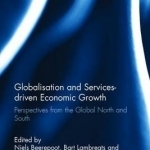
Globalisation and Services-Driven Economic Growth: Perspectives from the Global North and South
Niels Beerepoot, Bart Lambregts, Jana M. Kleibert and Robert Kloosterman
Book
Following drastic shifts in the spatial organization of goods production, increasingly fierce...
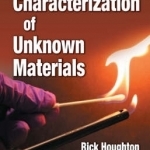
Emergency Characterization of Unknown Materials
Book
Deliberately, accidentally, or consequentially, first responders and waste site workers handle...
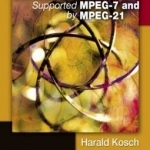
Distributed Multimedia Database Technologies Supported by MPEG-7 and MPEG-21
Book
A multimedia system needs a mechanism to communicate with its environment, the Internet, clients,...
